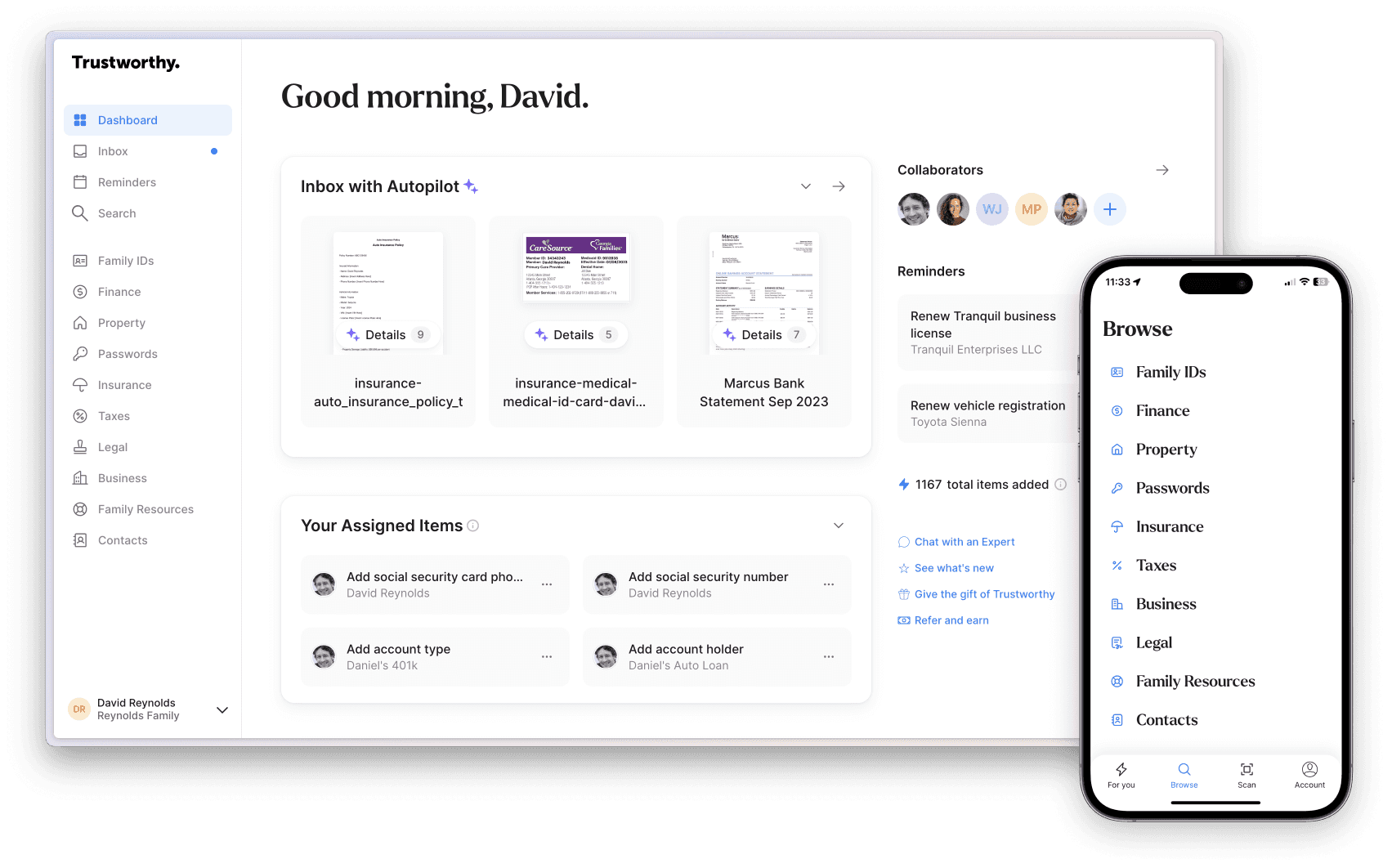Obsessive-compulsive disorder, or OCD, is a complex mental health condition that affects many aspects of people's lives, and it’s more common than a lot of us might think.
An estimated 1 in 40 adults — about 8.2 million Americans — either have or will develop OCD. These individuals often face numerous daily challenges, with one of the most significant being the difficulty in maintaining effective organizational strategies.
If you’re living with OCD or supporting someone who has it, figuring out where to start with organization can be challenging.
That’s why we sat down for a Q&A session with Dr. Sham Singh, a psychiatrist trained at Harbor-UCLA Medical Center and now based at the Winit Clinic. Singh takes a modern, holistic approach to mental health care.
Based in California, he has extensive experience treating a range of conditions, including schizophrenia, bipolar disorder, depression, and OCD.
Read on to get his take on the organizational challenges people with OCD face, get pro tips on physical and digital tools, and find out how individuals with OCD can use collaboration to develop and maintain organizational strategies.
What Challenges Does OCD Pose in Terms of Getting Organized?

Answer: One of the most significant challenges people with OCD face when trying to stay organized is the compulsive need to maintain a perfect sense of order.
Individuals often struggle to start or complete organizing tasks because they feel driven to create an ideal system that may never feel "good enough."
This can lead to endless adjustments or even abandoning tasks entirely if things don't meet the stringent standards in their mind.
What Organizational Strategies Help People With OCD?
Answer: My advice to someone who has OCD and wants to become more organized would be to begin small and set achievable goals.
For OCD clients, I recommend simplifying or using very structured systems to minimize the potential for overthinking. Limiting the choices, for instance, using few and well-defined categories in organizing, helps make the task more manageable.
One of the other helpful strategies is adopting a "good enough" rather than "perfect" mindset because that way, the individual manages to avoid details that could trigger compulsions.
A plan for the day or week should be developed to keep organization going in small, attainable steps with a sense of control and accomplishment without overwhelming anxiety.
Keep in mind that organizing is a process and doesn't need to be tackled all at once. These tiny successes will help build confidence to show you that organization is achievable and rewarding, not intimidating.
How Does Therapy Help Maintain Organization Systems?
Answer: As a psychiatrist specializing in OCD, I believe therapies like cognitive behavioral therapy (CBT) are key in helping individuals with OCD manage their symptoms.
In particular, exposure and response prevention (ERP) therapy teaches patients how to resist compulsive behaviors, which helps with organizing. ERP involves gradually confronting the anxiety associated with disorganization and learning to tolerate the discomfort of not engaging in the compulsive act of checking or reorganizing.
Over time, this process helps individuals develop healthier behavior patterns when it comes to organizing.
What Physical Tools Can Those With OCD Use to Organize Documents?
Answer: Physical tools such as binders, color-coded folders, and label makers may provide hands-on organization of documents in a very concrete and controlled manner.
Many people with OCD like clear visual clues. Color-coding gives a sense of order and continuity without necessarily requiring constant readjustment.
Binders with dividers may create a structured system that can easily be followed and maintained, thus giving them the capability of finding what they want without feeling overwhelmed by options or clutter.
How Can Digital Tools Help People With OCD Get Organized?

Answer: Digital tools have a number of advantages for individuals with OCD, including structure and flexibility without clutter.
Applications help keep documents and notes organized digitally in an accessible but easily updated way. Cloud storage enables making digital backups so that important documents can be accessed anywhere, reducing anxiety over loss or misplacement.
What Features Should Those With OCD Look for in Digital Organization Tools?
Answer: In choosing a digital organization tool for someone with OCD, the features to look for in such a tool include clearly categorical ones that offer searchability and frequent backups.
Simplicity is key because too many options or a complicated interface will only increase your stress and make it harder to use.
Further, categorizing and labeling of tools can lead to a harmonized system of sorts. Those that contain reminders for periodic reviews or cleanups are very beneficial for maintaining organization over a period of time.
How Can Those With OCD Use Collaboration to Stay Organized?
Answer: A very important resource in keeping organizing strategies is support. If managing systems is the hard part, then having support from trusted people might be a strong asset.
Having a "buddy" or family member call and check in provides accountability and cheerleading. Some people find it very effective to work with a mental health professional to integrate cognitive-behavioral strategies. The professionals can provide the support needed to resist the compulsion to reorganize obsessively and to do the work of reinforcing practical habits.
––––––––––––––––––––––––––––––––––––
Using Trustworthy to Streamline Organization

If you’re living with OCD and are on the hunt for a digital organization tool that supports collaboration and smart categorization, it’s worth checking out Trustworthy.
Trustworthy’s innovative Family Operating System® is designed to help individuals get (and stay) organized. With Trustworthy, users can create and upload digital copies of their important family documents, ensuring that nothing gets lost and can be accessed and shared from one secure place.
Thanks to Trustworthy’s AI-powered Autopilot feature, user uploads can be automatically named, categorized, and summarized. That removes a lot of friction from the organization process, making it fast and simple.
From there, everything is searchable and can be accessed in-browser or via an iOS mobile app, which means users can access critical documents on the go.
Finally, there’s collaboration and support.
Collaboration is deeply embedded in Trustworthy’s system. Users can extend granular access to family members or trusted professionals so they can access key documents, and so individuals with OCD who are reliant on support systems can onboard those individuals as users.
Ready to learn more? Find out how Trustworthy can help you support people living with OCD to get organized.
We’d love to hear from you! Feel free to email us with any questions, comments, or suggestions for future article topics.
Trustworthy is an online service providing legal forms and information. We are not a law firm and do not provide legal advice.














